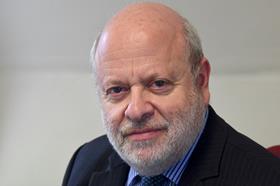Although we are entering a period of some scary elections (for instance, in the US), our own on 4 July is not so scary.

As many commentators have pointed out, the policy differences between the main parties are not large, and few of us believe that the main parties or party leaders pose a threat to democracy. That is not the case elsewhere: in the United States, which votes in November, many on either side fear for democracy if the other side wins.
The European Union has its own election at the end of this week, between 6 and 9 June. The big unknown is how well the far right will do, and the extent of its impact on future EU policy and cohesion.
Lawyers have their own issues in all these elections, on lawyer-related topics.
The Council of Bars and Law Societies of Europe (CCBE) has issued a manifesto for the EU elections, some of whose policies we could well adopt for ourselves.
We can ignore those points specific to the EU. For instance, the EU is a large funder of many civil society projects, including on lawyer training, and the CCBE asks for a more equitable and accessible distribution of EU funds for such training (‘The EU should introduce a funding mechanism designed to facilitate large-scale, cost-effective, well-resourced, and structured training for lawyers across the EU’). That is because the training provided to judges and prosecutors, who are state employed, is through a comprehensive big-budget scheme, which does not oblige the providers to apply each time separately for specific training projects on specific legal topics, as lawyer training providers have to do.
It is inconceivable that the UK government would provide funding for lawyer training. Similarly, the point about properly implementing current EU procedural safeguards in criminal matters (or indeed introducing new safeguards) is inapplicable here, because these measures are aimed at improving trust in the mutual recognition of cross-border decisions in criminal matters – we do not have the same internal borders for crime, and we already implement equivalent measures.
But there are universal points in the CCBE manifesto. For instance, the CCBE wants ‘a Europe that defends the rule of law, fundamental rights, and democracy, as well as safeguards the role of an independent legal profession in upholding these values’ (its first demand). Hurray to that.
It also calls for ‘the need to ensure that the EU legislative process is guided by standards that have a positive impact on the administration of justice’. In the small print, it gives examples of problems that have arisen in past EU legislation – in anti-money laundering, tax and electronic evidence, where lawyer-client confidentiality has been put at risk (in the first two examples through possible or actual lawyer reporting obligations). The CCBE goes on to say that many of the continent’s future challenges, such as climate change, AI and digitalisation, may pose similar threats to lawyers’ core values. These are further areas where we can make common cause.
To avoid future misunderstandings on the lawyer’s role, the CCBE calls on the EU to organise annual meetings with all actors involved in the administration of justice in order to have a continuing, constructive exchange of views on legislation and issues impacting the rule of law - a good idea.
The European elections are imminent. Our own are still about four weeks away. At the time of writing, the main political parties’ manifestos have not yet been published.
The Law Society’s views on the issues affecting lawyers are already well-known, through continuing statements over the last parliament, which focus, among other things, on the availability of civil and criminal legal aid, the courts (backlogs and infrastructure), and the contribution of legal services to the UK economy.
The Law Society is also to be commended for launching a recent report packed with policy ideas, just before the election was announced. Over a month ago, it published an interim report in its 21st century justice project.
Given that we know that, whichever party wins the election, there will be no significant money invested in justice in the foreseeable future, the Law Society has identified in its report other practical ideas to help small businesses and people on low incomes. Areas covered include improvements to legal expenses insurance, reform of the ombudsman sector for dispute resolution, and protection of consumers when using generative AI. These can be promoted during the election, and especially afterwards.
We may have many challenges, but our democratic system seems in better shape than some others. Just a brief glance at the US’s long election campaign should prompt relief at our own choices.
As lawyers, we have tried and tested values and longstanding concerns. Our demands of politicians should be focused on the rule of law, access to justice and the independence of the legal profession.
Jonathan Goldsmith is Law Society Council member for EU & International, chair of the Law Society’s Policy & Regulatory Affairs Committee and a member of its board. All views expressed are personal and are not made in his capacity as a Law Society Council member, nor on behalf of the Law Society































No comments yet